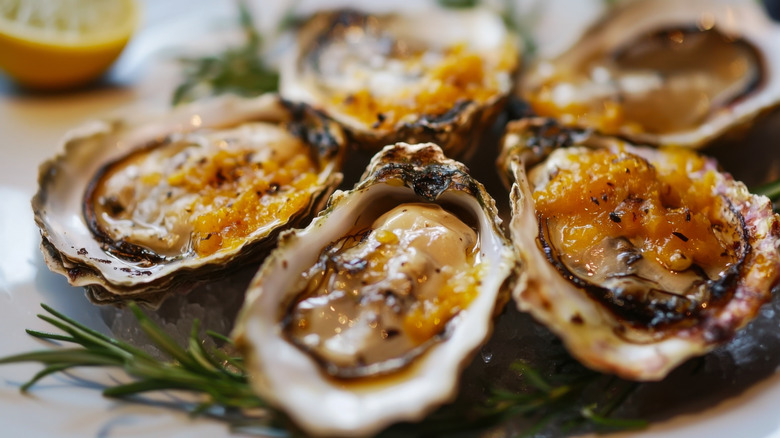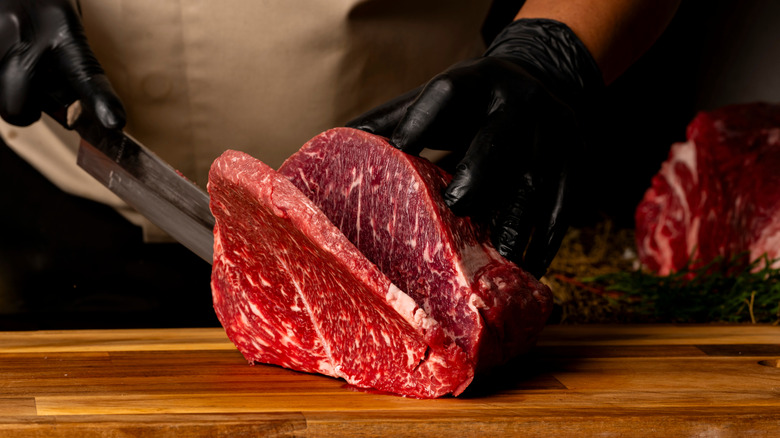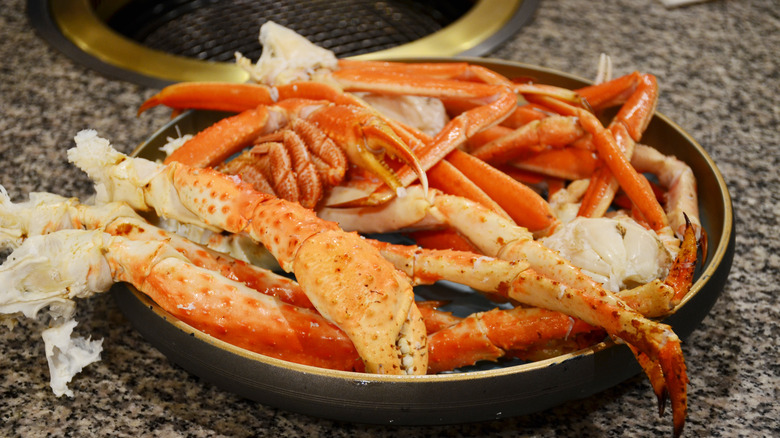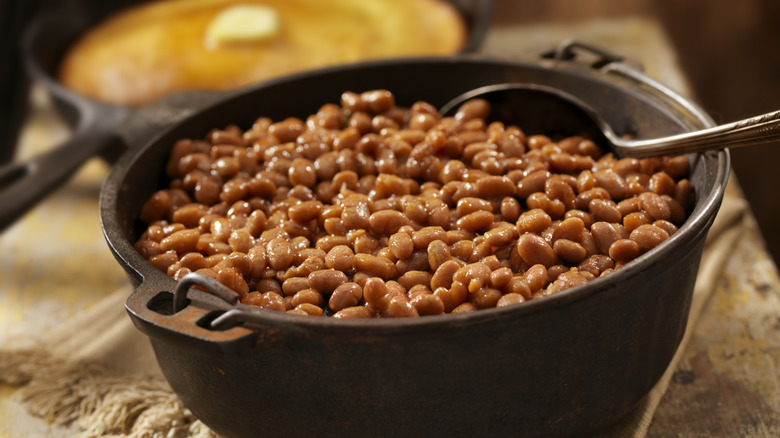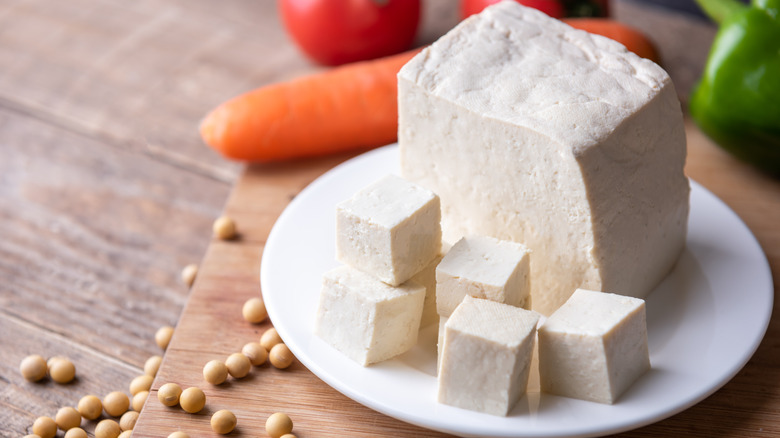The 5 Best Proteins You Can Eat If You Need More Zinc
You might reach for zinc lozenges during cold and flu season, but this essential mineral does a lot more for your health. In addition to supporting your immune system, zinc plays a key role in cell growth and healing. It also helps your digestive system process carbohydrates, proteins, and fats. While zinc deficiency isn't common in the United States, a diet low in zinc can lead to diarrhea, skin rashes, and slow-healing wounds.
If you're a meat lover, you're probably getting enough zinc. However, infants and older adults may have low levels of zinc, and pregnant women need more zinc for their developing babies. People with alcohol use disorder may also struggle to absorb enough zinc. The recommended daily intake is 11 milligrams for men and 8 milligrams for women, with pregnant and breastfeeding women needing at least 11 milligrams. While a multivitamin can help, you can also boost your zinc intake by eating some of these foods rich in both zinc and protein.
Oysters are the ultimate zinc powerhouse
Oysters may be famous for their pearls, but they also happen to be the richest source of zinc. A 3-ounce serving of cooked Eastern oysters provides 52 milligrams of zinc, which comes to more than four times the daily value of this mineral. That's not the only mineral. Oysters have plenty of iron and selenium. If you're looking for some extra vitamin B12, add a few oysters to your plate. You get more than four times your recommended vitamin B12 in oysters. With just 67 calories, oysters also offer more than 7 grams of protein and less than a gram of saturated fat. Those looking to improve their heart health can turn to oysters for about 27% of the recommended omega-3 fatty acids.
Some people enjoy raw oysters, but raw or undercooked oysters can be contaminated with bacteria. To enjoy cooked oysters, top them with some olive oil, breadcrumbs, and some of your favorite spices, and bake them in the oven. If you're not about shucking your own oysters, your seafood section can open them for you. You can find canned oysters in the grocery store and add them to a healthy seafood stew.
Red meat is a hearty way to meet your zinc needs
It's no surprise for beef to make this list, but some animal proteins are higher in zinc than others. Ounce for ounce, a ribeye steak has the highest amount of zinc. A 5-ounce serving of a cooked ribeye filet has more than 15 milligrams, which is about a day and a half's worth of your recommended zinc. A hearty 42 grams of protein can also be found in this steak. Ribeye is also a good source of potassium, iron, selenium, and B vitamins. Older adults, who are more likely to have a vitamin B12 deficiency, could enjoy a little ribeye steak for almost 5 micrograms of vitamin B12 (twice your daily value).
If you're trying to watch your cholesterol, you may want to limit eating ribeye to once a week or on special occasions. Ribeye steak isn't the worst offender for saturated fat, but you'll still take in almost 4 grams. The American Heart Association suggests limiting your saturated fat intake to 6% of your daily calories, or 13 grams for a 2,000-calorie diet.
Order Alaskan king crab for a zinc-rich treat
You may not cook Alaskan king crab at home, but consider this seafood delicacy when you go to a restaurant if you need more zinc. A 5-ounce serving of king crab offers almost 11 grams of zinc and 27 grams of protein. Crab is also low in fat but offers almost 40% of your recommended omega-3s. Along with zinc, crab gives you a full day's supply of selenium and six times your daily B12 needs. Alaskan king crab is also a good source of magnesium and other B vitamins.
However, Alaskan king crab may not be the best menu choice for people with high blood pressure. Although you'll get about 8% of your daily recommended potassium to help relax your blood vessels, king crab has a surprising 1,519 milligrams of sodium. The American Medical Association recommends an upper limit of 1,500 milligrams of sodium for people with high blood pressure. An upper cap of 2,300 milligrams is advised for others who want to ward off chronic disease.
Add baked beans for a plant-based zinc boost
You don't have to rely on meat or seafood to get enough zinc in your diet. Plant-based sources can also provide a good amount. A cup of canned baked beans delivers half of your daily zinc needs, along with 12 grams of protein. Beans are also rich in potassium, iron, selenium, and magnesium, but keep an eye on the 871 milligrams of sodium. Known for their fiber content, baked beans will help keep you full with a healthy 10 grams. The soluble fiber in beans can also lower LDL cholesterol by reducing cholesterol absorption into your bloodstream.
Depending on the brand, baked beans may contain added sugars. Bush's Baked Beans, for example, may be delicious, but they pack 22 grams of added sugar. You can cut down on the sugar by making homemade baked beans with canned navy beans, chipotle paste, garlic, and apple cider vinegar. Instead of using ketchup and brown sugar, swap them out for tomato puree and maple syrup.
Tofu is another plant-based zinc source
If you're looking for another plant-based source of zinc, tofu is a great option. Just one cup of tofu provides 36% of your daily zinc needs while also packing in more protein than a steak. Tofu is also loaded with calcium, giving you a full day's worth to help build strong bones. You'll also get plenty of iron, magnesium, selenium, and B vitamins. Tofu offers almost 6 grams of fiber to lower your cholesterol and help your digestion.
Tofu is especially helpful for those managing blood pressure. It delivers almost 600 milligrams of potassium while keeping sodium low at just 35 milligrams. And don't worry about the 22 grams of fat — most of it is heart-healthy unsaturated fat. In fact, tofu provides nearly all your daily omega-3s. It also contains plant-based compounds called isoflavones that are linked to better health. A 2020 study in Circulation found that people who ate tofu at least once a week had an 18% lower risk of heart disease compared to those who ate it less than once a month.

